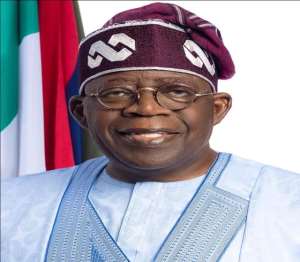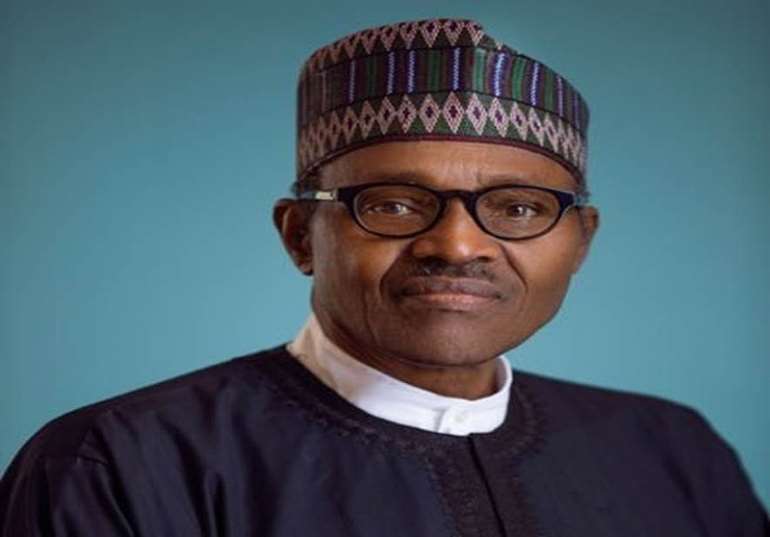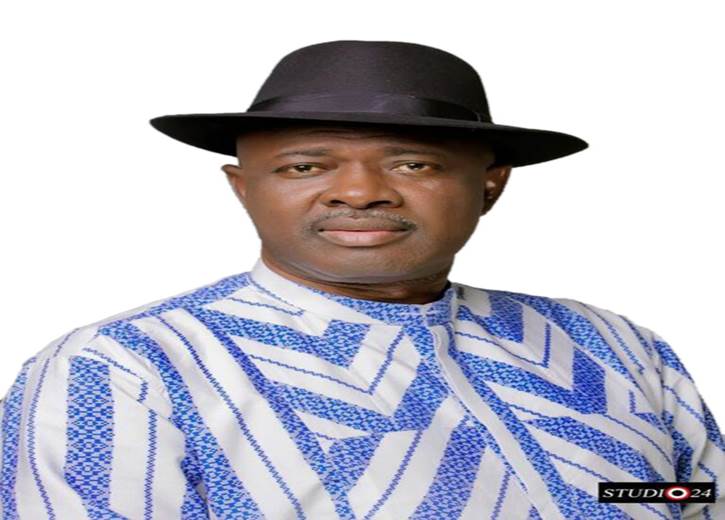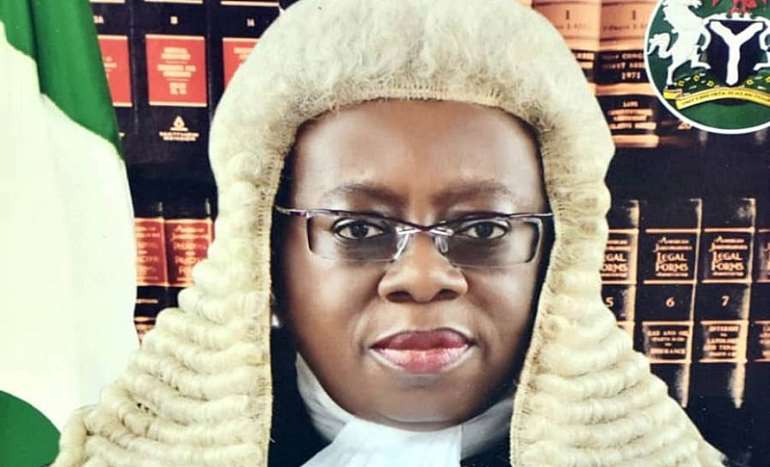
The Fulani ethnic group we know in Nigeria is historically a nomadic people. But even when they can conveniently pass for a minority group in the country, they have continued to play a rather outsized role in Nigerian society and politics. Their rise to dominance began long before the evolution of Nigeria as a nation-state. Notably, they rose to prominence with the 19th-century jihad led by Shehu Usman Dan Fodio, which established the Sokoto Caliphate. This theocratic empire would later become the most powerful political and religious institution in Northern Nigeria which has left an indelible mark on the structure of the region.
With the advent of British colonialism at the start of the 20th century, the Fulani ruling class quickly adapted and formed an alliance with the colonial administration through the system of indirect rule. The result was a consolidation of Fulani authority over the north and a significant influence on the shape and power dynamics of modern Nigeria.
A former Director-General of the State Security Service (SSS) at some point revealed the entrenched and dangerously supremacist mindset that reflected a deeper historical and ideological foundation on which the Fulani oligarchy in Nigeria was laid. He was quoted as saying: “The problem with you Southerners is that you can never understand the north. We are a mystery to you and you cannot comprehend us despite all your boasting that you are better than us. You claim to be educated but in fact you are uneducated and uncivilized. What do you know about education and what has it done for you? We Fulani toss a small bone to you from our table and you betray and fight each other like dogs for it. You crawl before us and beg us for crumbs. That is your lot in life. You are nothing more than beggars. Cowardly and contended slaves!
“Just like your fathers served us, so you shall serve us. Just as you serve us, so your children shall serve us. And just as your children shall serve us, so their children shall serve us. We are born to rule. Leadership is our blood. No-one in this country can stop or change it. No-one can touch us. Allah has given us Nigeria. It is gift to our forefathers from him. Our great grandfather Sheik Othman Dan Fodio and the Mujahedeen fought for it. Our grandfather the Sarduana, Sir Ahmadu Bello expanded our borders and frontiers. Our father President Muhammadu Buhari has come to complete the job and he is doing very well. You see the most effective chains are the invisible ones. We already have you in those chains but you just don’t know it. We took our power back in 2015. We will not release it to southerners or unbelievers again. Not in the next 100 years!
“It is true that we came from Futa Toro and Futa Jalon many years ago and conquered the north. Now every inch of it belongs to us. Every Fulani whether from Mali, Senegal, Guinea, Niger, Chad, Cameroon or anywhere else is our brother and has a right to be here with us. We are Fulani before Nigerian and our allegiance is to our Fulani brothers all over West Africa more than you. Now we will conquer south and we do it in the name of “One Nigeria”. In that “One Nigeria” we shall remain the masters and you shall remain the slaves! None of you are going anywhere. Nigeria will never break. We will not allow it.”

Late President Muhammadu Buhari
Whether this quote was accurately attributed to him or not, it captures the sense of entitlement, perceived superiority, and internal cohesion of the Fulani ruling elite. This mindset found expression in decades of Fulani political manoeuvring, ethno-religious patronage, and institutional domination that left much of the rest of Nigeria feeling marginalised and subjugated. Many observers have come to believe that since the return to democratic rule in 1999, and particularly following the 2015 presidential election of late Muhammadu Buhari, the Fulani elite had reasserted themselves with renewed vigour. The late Buhari, a former military ruler and a Fulani man from Katsina state, was widely perceived as presiding over a government that heavily favoured the north, particularly the Fulani. His appointments to critical national security and economic positions were often criticized as being prejudiced. The rhetoric and actions of his administration reinforced a sense of Fulani dominance, and contributed to feelings of alienation and resentment among other ethnic groups, particularly in the South.
Therefore, Asiwaju Bola Ahmed Tinubu’s emergence as the President of Nigeria in 2023 marked a significant shift. He was Yoruba from the southwest. But he was also a devout Muslim. Yet, he did not emerge from the traditional northern political establishment. His rise to power was both a political wonder and a strategic masterstroke. Despite his long alliance with northern Muslim politicians, Tinubu had always been seen by many as an independent-minded state actor with a vision to rebalance the Nigerian polity. And so, if indeed he sought to dismantle the Fulani political stronghold that has kept Nigeria in a perpetual state of ethno-religious imbalance and economic backwardness, as many Nigerians tend to believe, he would be confronting not only a deeply rooted elite system but also the multifaceted nature of the power dynamics it commands.
The Fulani stronghold is not merely a matter of individuals in power. It is a web of interests, institutions, and identities that cut across religion, ethnicity, regional loyalties, and international connections. The structure thrives on several pillars, but mainly on control of the security architecture, dominance in the civil service and bureaucracy, influence in the judiciary, manipulation of the electoral process, ideological cohesion, and strong ties with fellow Fulani across West Africa.
First and foremost, the security architecture in Nigeria was a major domain of their control. Under Buhari’s administration, key security positions were overwhelmingly dominated by northerners, many of them Fulani. This included the leadership of the army, police, intelligence agencies, and paramilitary organizations. The implication was not just an imbalance in national representation but a dangerous centralization of coercive power. For Tinubu to dismantle this, he needed to thoroughly reform the security agencies, ensure ethnic and regional balance in appointments, and implement merit-based leadership selection. Normally such reforms would inevitably face resistance, both from those who benefitted from the current structure and those who fear retribution in a new order. But the reforms did not when Tinubu made new appointments. And no previous officer was victimised. The transitions were seamless.
Second, the Fulani elite had historically maintained dominance in the federal civil service and bureaucracy. From the Ministry of Finance to the Central Bank, and from the judiciary to the petroleum industry, key strategic positions had often been filled with individuals loyal to northern interests. Rebalancing this required a deliberate policy of inclusion, transparency in appointments, and rigorous monitoring to prevent ethnically driven decisions. Tinubu did just that by ensuring that the Central Bank and the Judiciary were managed by a male and a female from the south-west, the oil industry by two south- south ministers of state and the civil service by a woman from the south-south. He differed from Buhari’s policy of being President and Petroleum minister. Tinubu empowered oversight institutions and ensured that civil servants were held accountable to the Nigerian people rather than to ethnic or religious loyalties.

Senator Heineken Lokpobiri: Minister of State for Petroleum Resources
Third, the electoral system had long been manipulated to maintain northern dominance. This was done through inflated voter rolls in parts of the north, underage voting, and the use of security agencies to suppress opposition in southern states. Electoral commissions had been infiltrated by northern loyalists, and the judiciary had often been used to legitimize flawed outcomes.
For Tinubu to change this course, Nigerians are anxiously waiting for him to overhaul the Independent National Electoral Commission (INEC), institute real-time digital voting systems, and ensure an impartial judiciary that is not partisan to ethnic or political interests. But perhaps the most difficult obstacle would be the ideological cohesion of the Fulani elite. Unlike many other Nigerian ethnic groups, the Fulani have a transnational sense of identity and purpose. They are bound not just by ethnicity but by a shared history, religion, and mission. Their networks extend across West Africa and beyond. They see leadership not as a matter of chance but of destiny. As the quote suggests, they believe they are born to rule, and this belief is passed on from generation to generation. This gives them a psychological and strategic advantage. They are prepared to wait, to strategize, and to use any means necessary to retain control.
Tinubu’s challenge, therefore, is not just to confront this structure but to present a compelling alternative. As a devout Muslim, he must galvanize the rest of the Nigerian people, particularly the South and the Middle Belt, into a unified front that demands equity, justice, and true federalism. He must invest in education, job creation, and infrastructure development in these regions to reduce the economic dependency that has made them vulnerable to manipulation. More importantly, he must create a new national narrative that celebrates diversity and meritocracy over ethnicity and nepotism. This will be a very useful tool for him to be able to navigate the transnational identity of the Fulani of West Africa. In addition, Tinubu must pass the battle on to the intellectual and media space.
The Fulani stronghold is also maintained through control of narratives, often backed by well-funded northern media and public intellectuals who justify northern dominance under the guise of national unity or stability. Tinubu must encourage the rise of credible Southern and Middle Belt voices in academia, media, and civil society who can articulate the vision of the new Nigeria that is the dream of all selfless, well meaning Nigerians. Without winning the war of ideas, the war for political reform will be difficult to sustain.

Chief Justice Kudirat Kekere-Ekun
Religion, too, is a critical front. The Fulani elite often cloak their political ambitions in the language of Islam. While there is nothing wrong with a religious worldview, the manipulation of faith for political dominance is a dangerous path for democracy. Tinubu, being a Muslim himself, must draw a clear line between religion and statecraft. He must promote religious freedom, protect minority faiths, and ensure that no religion is used to justify oppression or exclusion. His successful marriage to a Christian wife is his key and the evidence that both Muslims and Christians can, and should conveniently cohabit without unnecessary frictions. Being a devout Muslim, the resistance he might face cannot be enormous.
Even when the Fulani ruling elite have allies in every region, including some southern politicians who benefit from the current arrangement, it may not be so easy for them to fight a fellow Muslim who is saddled with such presidential responsibility as Tinubu is, especially given the fact that it was their “father” Buhari who handed the batten over to him. And unless order has broken down completely in the APC, he may also not face sabotage from within his own party which has northern power brokers with vested interests. There could be plots to destabilize his government. There could be economic sabotage, or even security threats. But these are most unlikely, given that both him and his deputy are devout Muslims who ran on a Muslim-Muslim ticket . The international community, particularly Western powers that prefer stability over justice, may not want to support radical reforms but the Nation of Islam would definitely stand for Tinubu’s preferences. A drastic change from the “business as usual” attitude of public office holders cannot be seen as a risk to their economic and security interests in the region unless they are security risks themselves.
Tinubu has opportunities. He has the support of a vast number of Nigerians who are tired of northern domination and are ready for change. He has a reputation for building and managing complex political coalitions. He has access to resources and influence that can be mobilized for reform. If he plays his cards well, he can initiate constitutional reforms that promote true federalism, empower local governments, and give states more control over resources and security. He must also tackle the herder-farmer conflict head-on. This crisis, often blamed on Fulani herdsmen, has cost thousands of lives and deepened ethnic divisions. By reforming Nigeria’s land laws, investing in ranching infrastructure, and holding perpetrators accountable, Tinubu can send a message to the people of Nigeria that impunity will no longer be tolerated. This would not only dismantle the myth of Fulani untouchability but also promote national cohesion.
It is also essential for President Tinubu to look beyond his tenure. Dismantling a structure that has been in place for over a century cannot be completed in four or eight years. He must groom and empower a new generation of leaders from across Nigeria who share his vision. He must institutionalize reforms, not personalize them. And he must resist the temptation to replace Fulani dominance with Yoruba dominance or any other ethnic hegemony for that matter. The goal should be a balanced Nigeria where no group dominates and no group is marginalized. Ultimately, dismantling the Fulani stronghold on Nigeria is not a war against the Fulani people. It is a war against injustice, imbalance, and the brazen misuse of political power. Many ordinary Fulani citizens are themselves victims of the same elite structure. They are poor, uneducated, and neglected. A true reform agenda must include them, empower them, and liberate them from the shackles of elite manipulation.
Nigeria is a nation of over 200 million people with immense potentials. It cannot afford to be interminably held hostage by the ambitions of a few people. If Tinubu is sincere and strategic, he can lay the foundation for a new Nigeria that is built on justice, equity, and progress. It will not be easy. The forces arrayed against him are powerful and entrenched. But history has shown that determined leadership, backed by popular support, can overcome even the most daunting obstacles. Dismantling the Fulani stronghold on Nigeria may be difficult, perhaps, but for someone who has Tinubu’s credentials, it can be done. So, can Nigerians rally round and lend him a helping hand?


